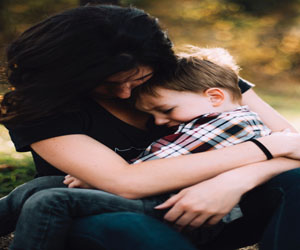


How Serendipity Shapes Our Lives
In a world where meticulous planning and carefully curated social interactions often take center stage, there's a unique and irreplaceable charm to chance encounters. These unplanned, spontaneous meetings with strangers can lead to significant moments, lasting friendships, and even life-changing experiences. In this article, we'll explore the magic of chance encounters and the profound impact they can have on our lives.
1. Unpredictable Connections
Chance encounters are defined by their unpredictability. They can happen anywhere and at any time. Whether it's meeting someone while waiting for your coffee, striking up a conversation on public transportation, or connecting with a stranger at an event, these spontaneous interactions are part of the unpredictability that makes life exciting.

2. New Perspectives
Chance encounters often introduce us to people from diverse backgrounds, cultures, and walks of life. These encounters can broaden our horizons and provide new perspectives that we might not have otherwise encountered. They expose us to different ways of thinking and living, fostering personal growth and understanding.
3. Shared Stories
The stories that come from chance encounters can be truly remarkable. They range from meeting a lifelong friend during a random encounter to crossing paths with a future business partner, mentor, or romantic partner. The narratives born from these serendipitous moments are often cherished and retold with enthusiasm.
4. Unexpected Opportunities
Some of the most significant opportunities in life can arise from chance encounters. A chance meeting at a networking event might lead to a career-changing job offer. An unplanned conversation at a social gathering might result in a unique and exciting project. The opportunities are as varied as the people involved.
5. Strengthened Social Bonds
Chance encounters can strengthen our social bonds by providing shared experiences and stories to recount with friends and loved ones. They add layers to our social lives and often lead to new introductions and friendships.
6. Spontaneous Acts Of Kindness
Chance encounters can bring out the best in people, leading to spontaneous acts of kindness. A stranger might offer help during a difficult moment or provide valuable assistance when you least expect it. These small acts of kindness are reminders of the innate goodness of humanity.
7. Lifelong Memories
Some chance encounters result in unforgettable memories. Whether it's a magical conversation with a stranger during a vacation, a serendipitous meeting at a concert, or a chance encounter with a wise elder who imparts valuable life lessons, these memories stay with us forever.
8. Grateful Reflections
After a chance encounter, it's common to reflect on the experience with gratitude. These moments serve as reminders that life is full of surprises and that we should remain open to the unexpected.
Chance encounters are a beautiful reminder that life is filled with delightful unpredictability. They have the power to change the course of our lives, opening up new opportunities, enriching our social circles, and leaving us with cherished memories. While planning and purposeful interactions have their place, there is something uniquely special about the spontaneous and unscripted connections that chance encounters bring. Embrace the magic of serendipity, stay open to the unexpected, and you may just discover the profound impact these encounters can have on your journey through life.
 Secure Attachment Styles
Secure Attachment Styles
Positive childhood experiences often lead to the development of secure attachment styles, which have a profound impact on adult relationships. Individuals with secure attachment styles typically feel comfortable with both intimacy and independence in their relationships. They are better equipped to create and maintain emotional connections based on trust, open communication, and mutual support. They carry the belief that they are worthy of love and are capable of forming positive relationships.
Fostering Healthy Relationships
The positive emotional connections forged in childhood act as a guide for developing and maintaining healthy adult relationships. Individuals who experienced a loving and supportive environment during their early years often exhibit greater emotional intelligence, better conflict resolution skills, and an overall positive outlook on relationships.
Positive childhood experiences teach important relationship principles:
Trust: Children who experience trust and reliability from their caregivers are more likely to trust others in adulthood. Trust is the foundation of any meaningful relationship.
Empathy: When children are shown empathy and compassion, they are more likely to extend these qualities to others as adults. Empathy is a cornerstone of healthy emotional connections.


How Childhood Experiences Shape Adult Relationships
 Anxious-Preoccupied Attachment: Those with anxious-preoccupied attachment styles often seek intense emotional connections but may struggle with trust and fear abandonment. Their attachments can become overly dependent on their partners, which can lead to challenges in maintaining a balanced relationship.
Anxious-Preoccupied Attachment: Those with anxious-preoccupied attachment styles often seek intense emotional connections but may struggle with trust and fear abandonment. Their attachments can become overly dependent on their partners, which can lead to challenges in maintaining a balanced relationship.
Dismissive-Avoidant Attachment: A product of childhood experiences that lack emotional nurturing, dismissive-avoidant attachment styles may find it challenging to establish deep emotional connections in their adult relationships. They tend to maintain emotional independence and may avoid vulnerability.
Fearful-Avoidant (Disorganized) Attachment: This style combines anxious and dismissive tendencies and often leads to complex emotional connections in adult relationships. These individuals may struggle to navigate the ebb and flow of emotional intimacy and independence.
How Childhood Experiences Shape Adult Relationships
 The Crucial Role Of Childhood Experiences
The Crucial Role Of Childhood Experiences
Childhood is the laboratory of emotional development, where the seeds of future relationships are sown. It's a time when we learn the essential elements of trust, empathy, vulnerability, and attachment. These building blocks are fundamental to forming healthy connections and fostering robust relationships in adulthood.
Positive Childhood Experiences And Healthy Connections
Positive childhood experiences serve as the fertile ground for the growth of healthy connections in adulthood. These early years are pivotal in developing the psychological and emotional attributes that contribute to forming lasting, meaningful relationships.
Trust: A nurturing childhood environment based on trust and reliability lays the groundwork for forming secure emotional connections in adulthood. Trust is the cornerstone of any healthy relationship, allowing individuals to open up and be vulnerable with one another.
Self-Esteem: Positive childhood experiences nurture a sense of self-worth and self-esteem. Individuals who grow up in such environments are more likely to maintain a positive self-image, which positively impacts their emotional well-being and their ability to build healthy connections.
Empathy: Experiences in childhood that promote empathy and compassion help individuals develop a deep understanding of the emotions and needs of others. This psychological attribute is vital in forming strong emotional connections in adulthood.






Building Deeper Relationships
 Empathy: Empathy is the ability to truly understand and share the feelings of another. It's about putting yourself in someone else's shoes and offering them your emotional support.
Empathy: Empathy is the ability to truly understand and share the feelings of another. It's about putting yourself in someone else's shoes and offering them your emotional support.
Vulnerability: True emotional connection often involves being open and vulnerable with someone, allowing them to see your authentic self, warts and all.
Active Listening: Active listening is the art of giving someone your full attention, truly hearing their words, and understanding the emotions behind them.
Trust: Trust is the foundation of emotional connection. It's the belief that you can rely on the other person, confide in them, and share your innermost thoughts and feelings without fear of betrayal.
Shared Experiences: Shared experiences, whether they are joyful or challenging, have the power to strengthen emotional connections. They create memories and bonds that last a lifetime.
The Significance Of Emotional Connection
Emotional connection holds immense significance in our lives for various reasons:
Enhanced Well-Being: People with strong emotional connections tend to report higher levels of life satisfaction, happiness, and overall well-being.
Support System: Emotional connections provide an essential support system in times of need. Having someone to confide in during difficult moments can be incredibly comforting.
Strengthened Relationships: Emotional connections can rejuvenate and strengthen relationships over time. They create lasting bonds and deepen the love and affection shared between individuals.
The Power Of A Deep Connection
 The Strength Of Friendship
The Strength Of Friendship
Close friends in love are privy to a strong foundation of friendship. They've weathered life's ups and downs together, sharing secrets, laughter, and experiences that have forged a unique bond. The comfort and trust developed during their time as friends serve as the bedrock upon which romantic feelings can flourish.
The Spark Of Romance
The transition from friendship to romantic love often begins with a subtle spark of attraction. It could be a newfound appreciation for each other's qualities, a growing sense of emotional intimacy, or the realization that they share an inexplicable connection. This transition marks the start of an exhilarating journey, one that requires open and honest communication.
Open Communication And Vulnerability
Close friends who choose to explore romantic feelings for each other must engage in open, heartfelt conversations. These discussions provide a space for both individuals to express their emotions, expectations, and concerns. Vulnerability is key, as it allows both parties to be honest about their evolving feelings and ensures that the relationship's foundation is built on authenticity.
The Depth Of Connection
As close friends become romantic partners, their connection deepens in a unique and profound way. The love they share combines the comfort and understanding of friendship with the passion and romance of a romantic relationship. This depth allows for a rich, multifaceted bond that is both enduring and deeply fulfilling.